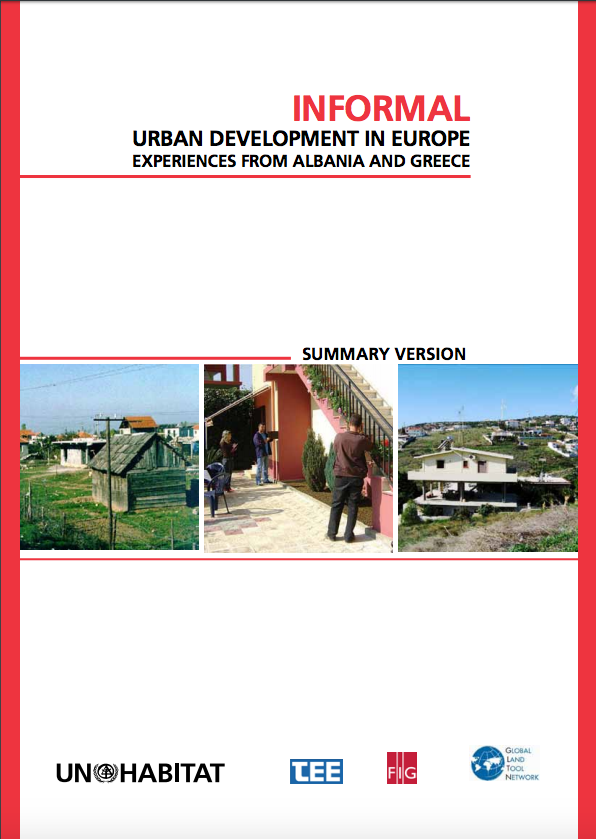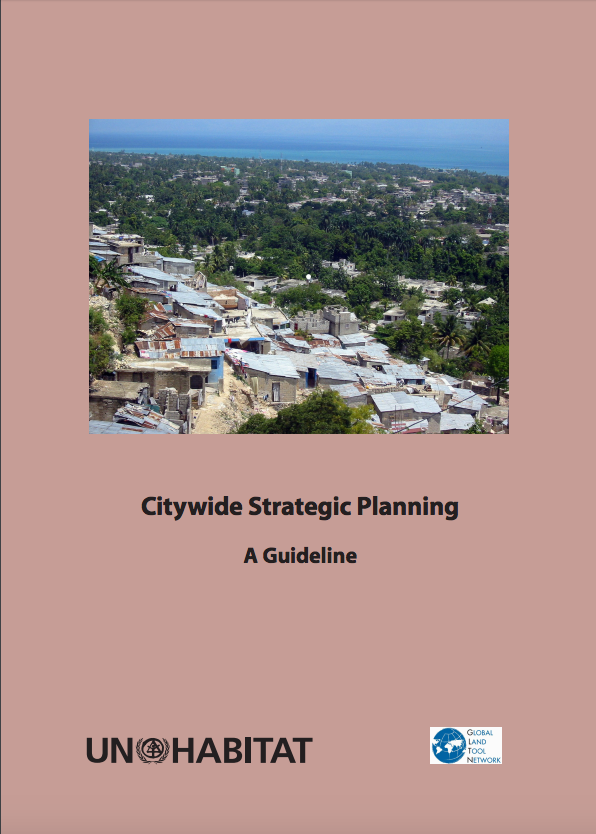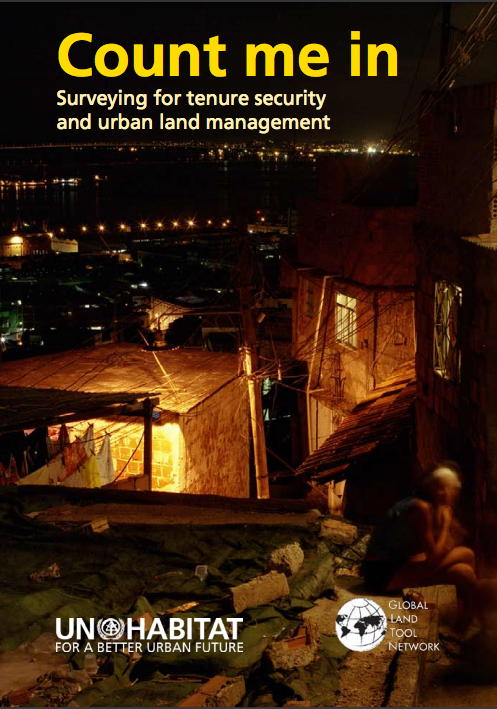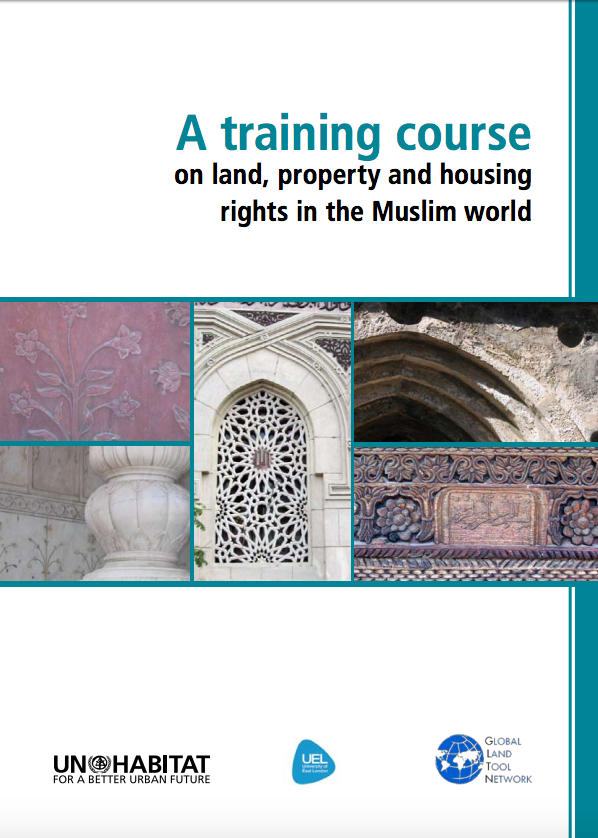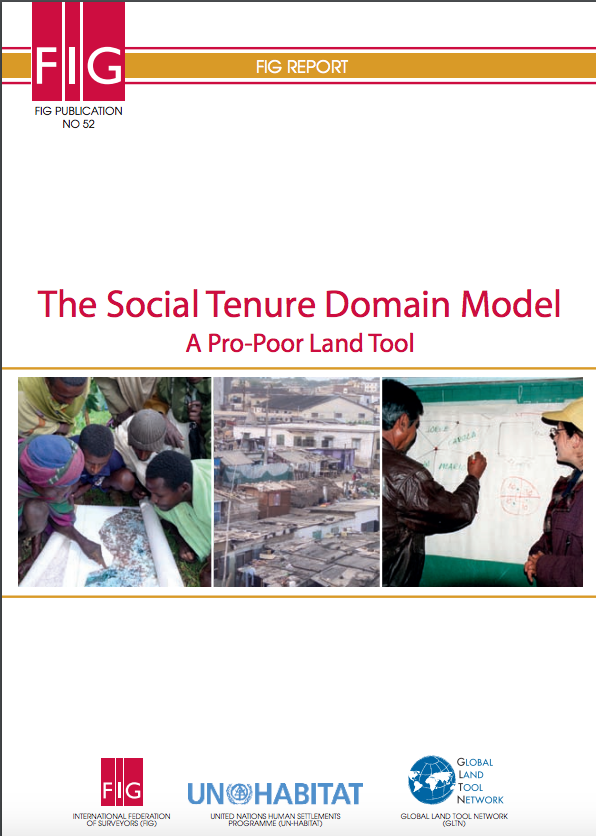Focal point
Location
The Global Land Tool Network (GLTN) is an alliance of global regional and national partners contributing to poverty alleviation through land reform, improved land management and security of tenure particularly through the development and dissemination of pro-poor and gender-sensitive land tools.
Secure land tenure and property rights are fundamental to shelter and livelihoods as well as the realisation of human rights, poverty reduction,economic prosperity and sustainable development.
The Global Land Tool Network (GLTN) main objective therefore is to contribute to poverty alleviation and the Millennium Development Goals through land reform, improved land management and security of tenure.
UN-Habitat through GLTN continues to work towards this with partners who include international civil society organizations, international finance institutions, international research and training institutions, donors and professional bodies.
Most developing countries use conventional land administration systems which cover less than 30 per cent of the country, leaving up to 70 per cent of citizens looking to informal and/ or customary approaches for their tenure security.
While there are many examples of good land policies, there are few policies that have been fully implemented due to lack of pro-poor, gendersensitive and largescale land tools. Further, conventional land titling approaches have largely failed to deliver their expected results since existing technical solutions are too expensive, inappropriate for the range of tenure found in developing countries, unsustainable financially or in terms of available capacity, and instead a range of land tenure options is more appropriate.
Core Values
Consequently, GLTN's core values and principles are founded in the development of land tools that are:
- Pro poor;
- Equitable;
- Sustainable;
- Affordable;
- Systematically large scale /scalable; and,
- Gender-sensitive, while taking into consideration:
- Good governance;
- Subsidiarity; and,
- The Continuum of Land Rights.
GLTN Objectives and Mandate
GLTN has developed a global partnership on land issues pulling together global partners, as well as many individual members. These partners include international networks of civil society, International Finance Institutions, international research and training institutions, donors and professional bodies. It continues to take a more holistic approach to land issues by working towards the following objectives:
- The establishment of a continuum of land rights, rather than just focus on individual land titling
- Improving and developing pro-poor land management, as well as land tenure tools
- Unblocking existing initiatives Assisting in strengthening existing land networks
- Supporting in the development of gendered land tools which are affordable and useful to grassroots
- Improving the general dissemination of knowledge about how to improve security of tenure
- Improving the general knowledge dissemination on the improvement of security of tenure
Resources
Displaying 261 - 265 of 286Informal Urban Development in Europe: Experiences from Albania and Greece
The study provides the background and objectives of the Athens workshop, then provides separate in-depth background and analysis of the informal development solutions being adopted in Albania and Greece. Following a review of just how ‘pro-poor’ the solutions are, the final chapter provides a series of lessons learned, many of which can be applied to other countries experiencing informal development issues.
Citywide Strategic Planning: A step by step guide
Citywide Strategic Planning articulates the necessary ingredients for initiating and implementing a planning process that focuses on a set of strategic issues of principal importance for sustainable urban development. The guide presents the citywide strategic planning rationale and approach. Three main questions are addressed – where are we today? - where do we want to be? -how do we get there?
Count me in: Surveying for Tenure security and Urban Land Management
The young man was scared. The city government had instructed him to count the shacks in the settlement. He arrived smartly dressed carrying a briefcase and clipboard with pen in hand and a list of the shacks. His job was to find any new shacks without the official number painted on the door. But he immediately ran into problems. The local residents confronted him, asking what he was doing. Soon a small crowd had gathered. They took him into the community hall, where a meeting was under way. He explained that the city had sent him, but the local people were suspicious.
A Training Course on Land, Property and Housing Rights in the Muslim World
This training course from the Global Land Tool Network is part of the Network’s activities on Islamic dimensions of land. In most Muslim countries, Islamic law, principles and practices make an important contribution to shaping access to land. GLTN therefore has as one of its objectives the identification and development of Islamic land tools and case studies through a cross-cultural, interdisciplinary and global process, owned by Muslims, but also including other civil society and development partners.
The Social Tenure Domain Model: A pro poor land rights recording system
Most developing countries have less than 30 percent cadastral coverage. This means that over 70 percent of the land in many countries is generally outside the land register. This has caused enormous problems for example in cities, where over one billion people live in slums without proper water, sanitation, community facilities, security of tenure or quality of life. This has also caused problems for countries with regard to food security and rural land management issues.





